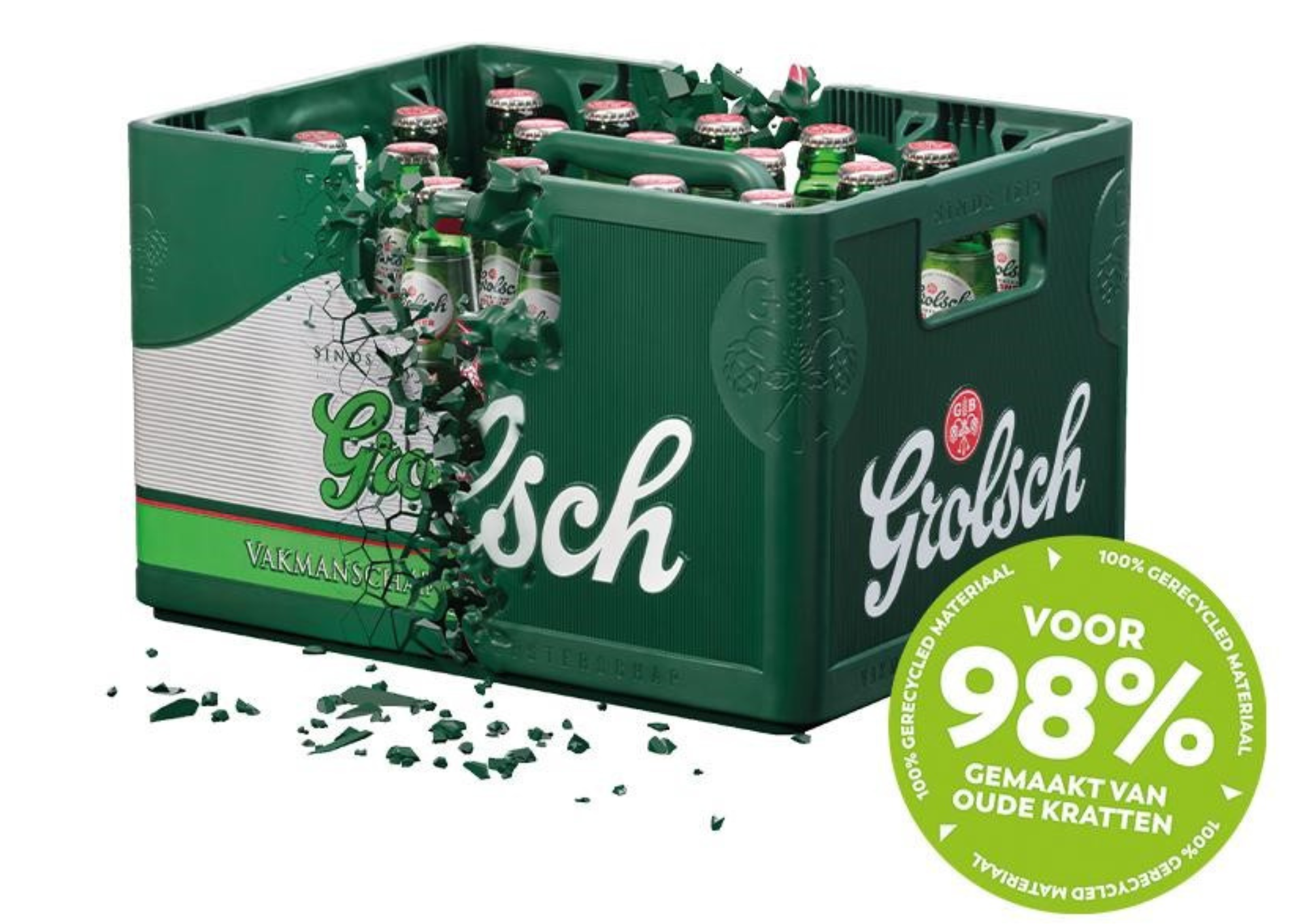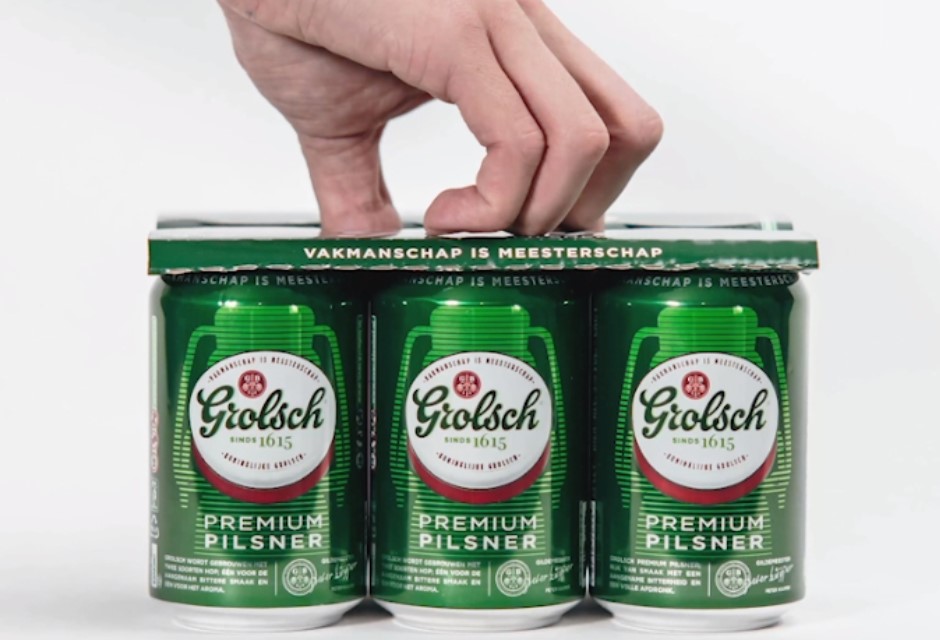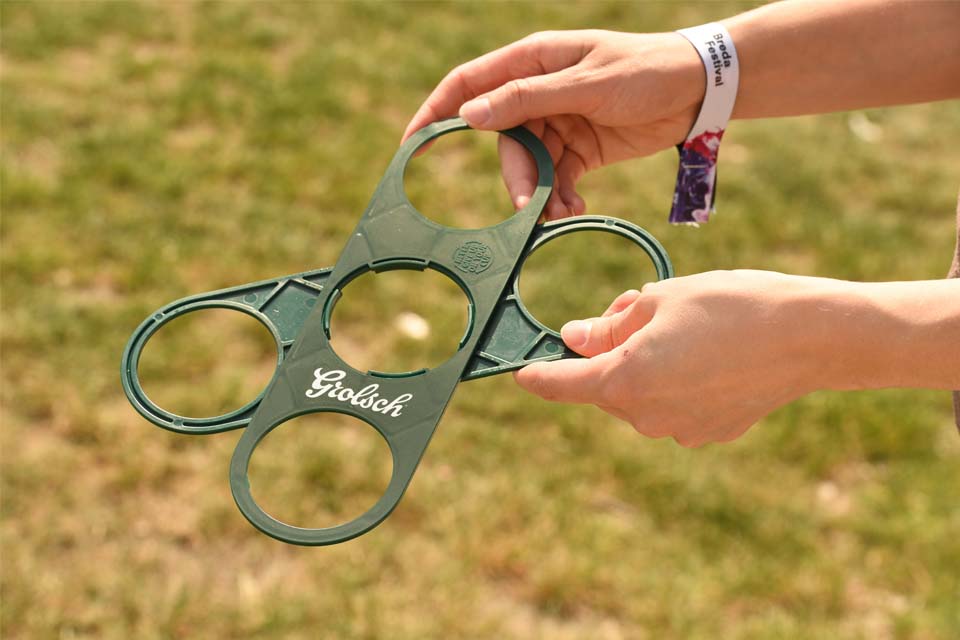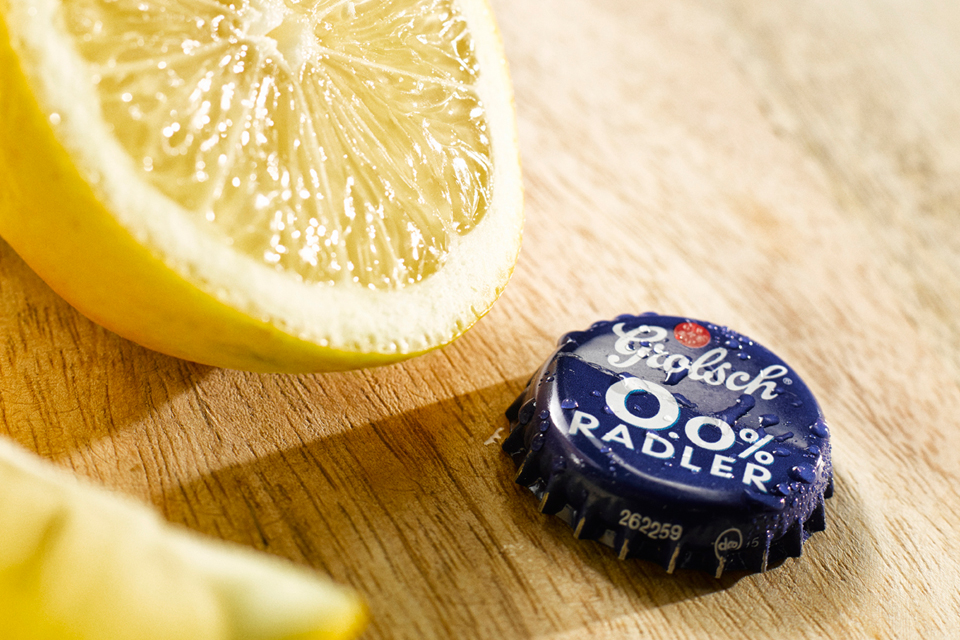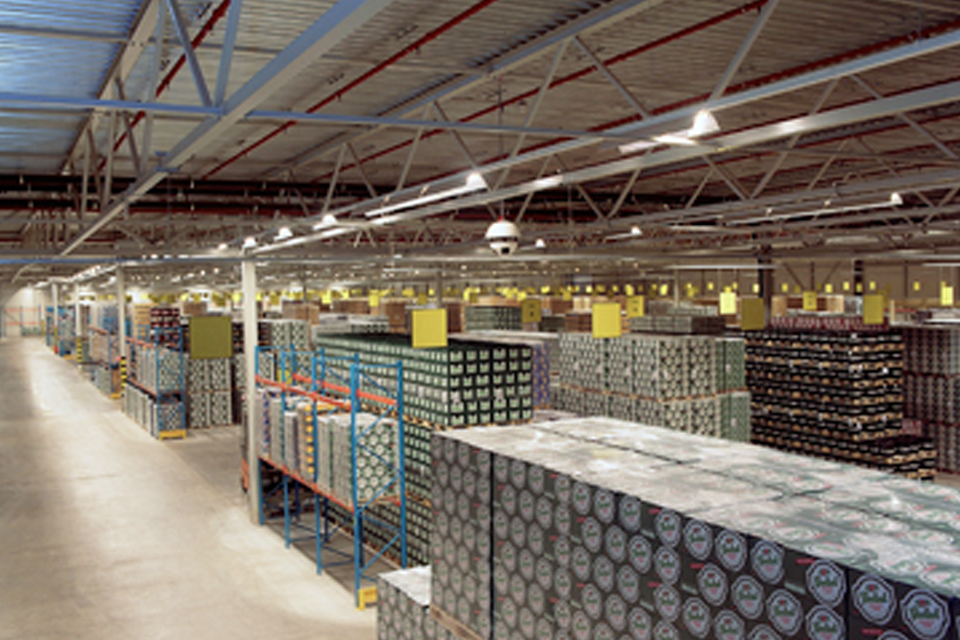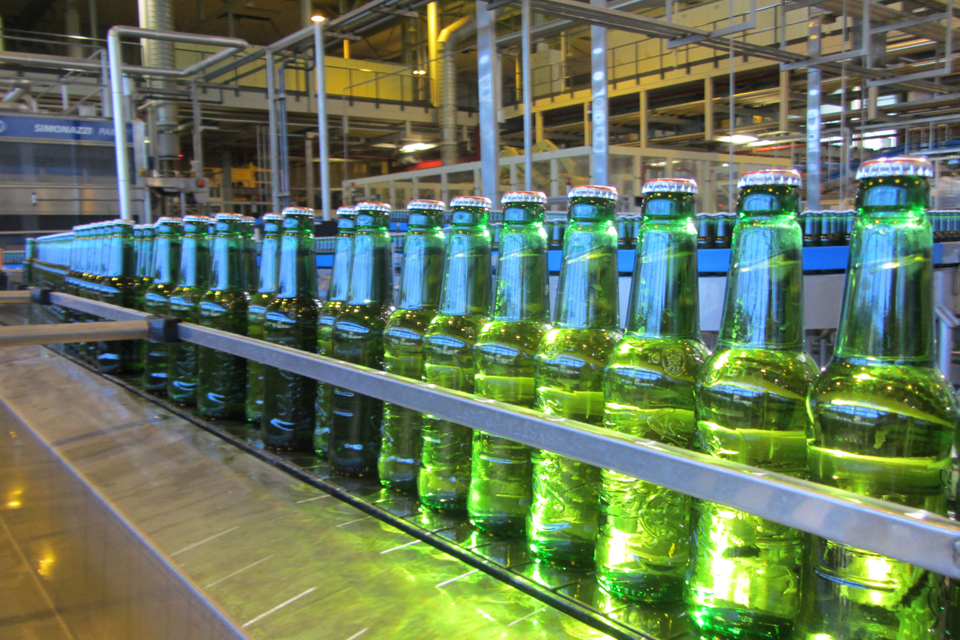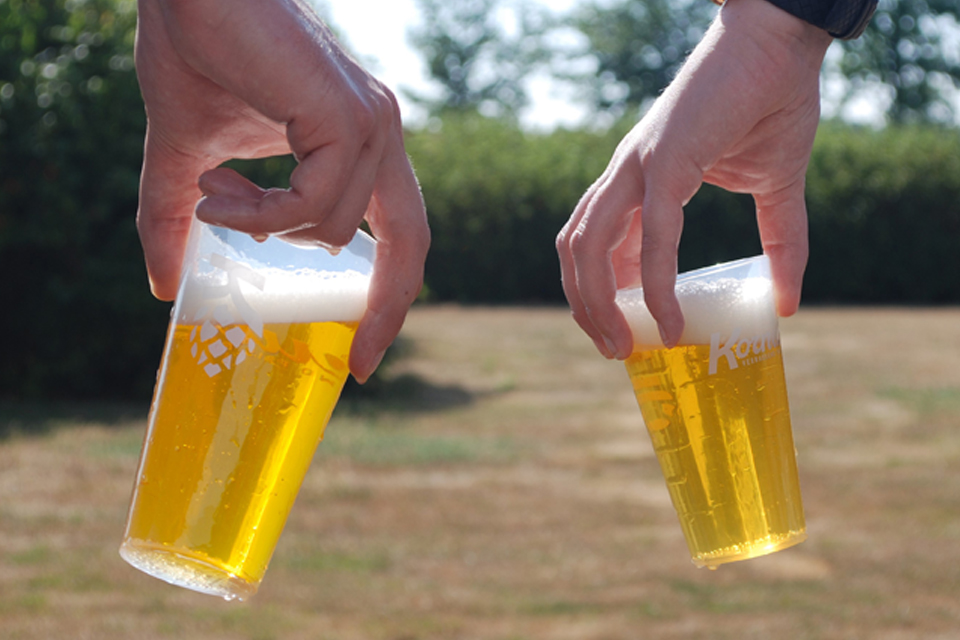Circular packaging
Maximising Circular Packaging
Joost Nawijn
Packaging Material Development Specialist
"We will continue to strive for further improvements in the coming years that will lead to less waste, less material consumption and lowe transport costs."
Maximising circular packaging
We use lightweight packaging and make sure that our bottles are reused. We promote recycling, as it helps us save resources and reduce our impact on the environment. Sustainability is key when it comes to designing and developing our packaging: we constantly ask ourselves whether we can be even more environmentally friendly and always strive to keep innovating.
Objective
Introduction of lighter export bottle.
Result
Technically completed in November 2023. Introduction from January 2024.
Objective
Introduction of pallet wrap film for our pallets with cans.
Result
Introduction of stretch wrap film for the pallets with canned products. A weight reduction of about 65% per pallet with a saving of 12,000 kg in 2023.
Objective
Research into recyclable inliners (tank beer packaging) and their implementation after succesvol testing.
Result
Approval for implementation in December 2023. Deployment in the market from Q1 2024.
Objective
Introduction of new crate made from old Grolsch and Kornuit crates (98% recycled).
Result
Successvol introduction in 2023. Every week, 16,000 old crates are processed into new ones.
Objective
Introduction of can deposit.
Result
Successvol preparation and introduction in 2023.
OBJECTIVES 2024
- Research into the use of trays with canned products without tray film
- Research into the use of a higher percentage of recycled material in stretch wrap film: can we go from 30% to 50% and possibly even further in the future?
- Introduction of lighter 33cl + 50cl cans with the aim of saving material and CO2 in the chain
Joost Nawijn, Packaging Material Development Specialist – Royal Grolsch:
“Society is becoming increasingly aware of the importance of sustainability and demands responsible products. This is one of the reasons why we constantly ask ourselves whether we can be even more environmentally friendly and always strive to keep innovating. Achieving the same results with increasingly sustainable packaging is a major challenge for us, which we try to tackle by using more recycled plastic and cardboard, for instance, or modified pallet stickers. In the coming years, we will continue to strive to make further improvements that will reduce the amount of waste we produce and the amount of material we use, as well as lowering our transport costs. Sustainable production methods are the future of our company and, indeed, of the the world as a whole!”
Esther Saris, Key Account Manager Benelux – Smurfit Kappa
“Grolsch can be proud of the achievements in the field of sustainable and responsible business. In 2025, Grolsch wants to be completely CO2 neutral, an objective with character! You are not working alone on a sustainable future; it requires close cooperation. In practice, this means that we are constantly exploring new opportunities for material efficiency, innovation and the reuse of our packaging solutions. Smart packaging design makes it possible to reduce logistics movements and thus contribute to a fully CO2-neutral brewery. Sustainability and innovation are inextricably linked and offer new opportunities in collaboration. Sustainable goals will be the driving force behind a new era of creative approaches to products and services. I look forward to continuing our collaboration to contribute to a sustainable world. "
Henk Reinders, Sales Manager - Berry | bpi packaging solutions
"As part of our Impact 2025 strategy, Berry is committed to working with our customers to help meet and exceed their sustainability goals. Sustainability is therefore central to our partnership with Grolsch, and driven by our shared values, we have implemented a circular approach to the shrink tube film we supply for the safe packaging of beverages. Our film contains 50 per cent Sustane®, a high quality, high performance recycled polymer. Waste is then captured on site and returned to Berry for reprocessing back into Sustane®, creating a closed loop system for the film. We also take back for reuse all film reel cores and wedges that hold the reels in place on the pallets, minimising any waste. It is through initiatives such as these that we can demonstrate the firm commitment of both businesses to continue to develop packaging solutions that form an effective part of the circular economy".
Activities
Our 'not-so-new' crate
From April 2022, our 'not-so-new' Grolsch crate will flow onto the shop floor. Besides a new and fresh design, this crate is fully equipped for the future. Ridges and embossing have been added, for instance, so that stickers can be easily removed and the crates remain beautiful for longer. And the best part: 98% of the new crates are made from our old crates. Super sustainable!
Introduction TopClip
In 2021, we introduced our sustainable TopClip packaging for our 6-packs of cans. With this, we saved 46.7 tonnes of plastic over the year 2022. Meanwhile, behind the scenes we are working hard on the TopClip 2.0: a renewed packaging with Double Lock, with even better grip on the lid and less chance of opening. Together, we continue to innovate and work on sustainability!
Sustainable festival tray: saving money and the environment
In 2019 we started using reusable carrier trays at festivals for our beer brands Grolsch and Kornuit. These reusable carrier trays are made of recycled plastic and will replace their cardboard predecessors. Festival organisers are given the opportunity to borrow the reusable trays, with the brewer taking care of shipment, logistics, cleaning and storage. These trays are issued at the festival bars - provided festival guests pay a deposit - and returned later. Following the launch of our circular cups, we want to continue contributing to reducing the amount of plastic waste society produces, to cleaner festival sites, and to improving the overall festival experience. Once the festival season has begun and we're all out of leftover cardboard trays, these sustainable trays will be the only trays used with Grolsch and Kornuit beer.
More info: press release, 28 May 2019
Lightweight crown caps
We use lightweight crown caps for all our 33 cl return bottles. These caps are 17% lighter and contain 19% less steel than their predecessors, which means Grolsch now uses 100,000 kg less steel than before. On top of that, this change has reduced transport costs throughout the chain and has also lowered our environmental impact. Grolsch favours sustainable solutions without compromising on quality.
reduction of plastic pallet film
At the end of 2019, we started testing pallet film containing 50% recycled material. As of 2020 we supply this material to the supplier ourselves, from our own residual streams. In this way, we are recycling our residual flow of pallet film plastic into new pallet film for Grolsch products. The test period was completed in 2020, and the film has now been fully implemented. In 2020, this resulted in a saving of 52,000 kilos of virgin plastic.
Further reduction of the amount of glass used
Circular cups at festivals nl
In 2018 and 2019, our beer brands Grolsch and Kornuit launched a pilot with circular cups at festivals, offering festival organisers a full-service package that included delivery, logistics, cleaning and storage. In this way, we are looking to make our contribution to reducing the amount of plastic waste society produces, to cleaner festival sites, and to improving the visitor’s overall festival experience. During the pilot, we tested reusable hard cups and soft cups. The latter, made of recycled PET, appeared to be the best option. Due to Covid it was not possible to introduce the cups on a larger scale on festivals in 2020, but we plan to do this is 2021.
In the campaign titled ‘Never Give Up On Your Cup’, Grolsch joins forces with festival organisers and other beverage brands to call upon all festival visitors to return all plastic cups and bottles to the bar or to a collection point. ‘Never Give Up On Your Cup’ is one of the initiatives spearheaded by the Plastic Promise, which strives to pave the way towards a circular drinking experience at events.
To find out more, go to yourcup.nl
Watch the video about circular cups here.
